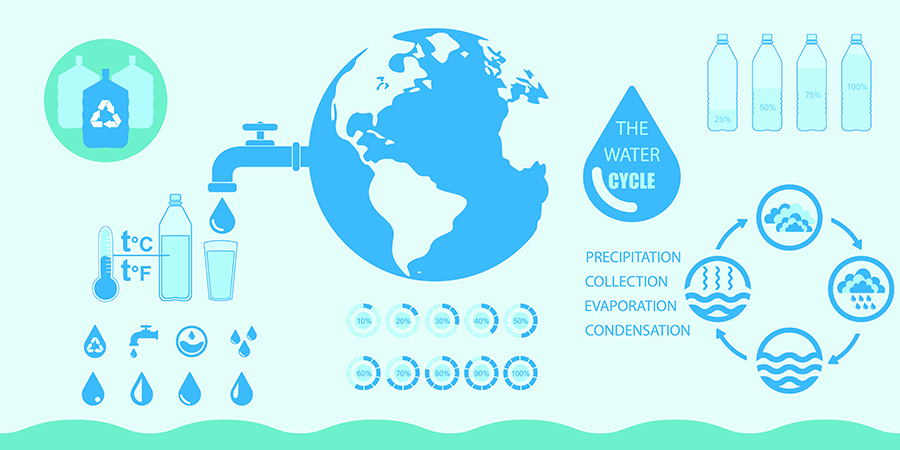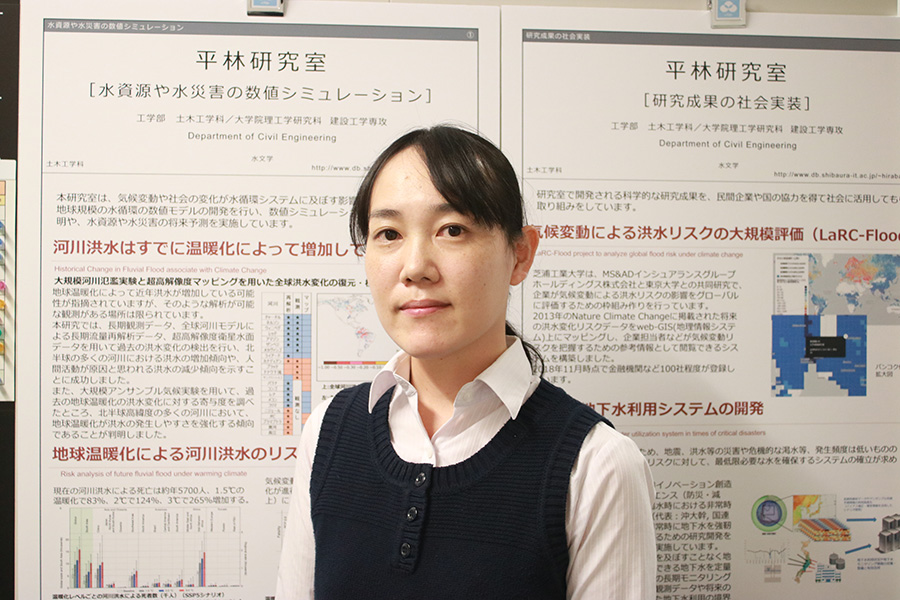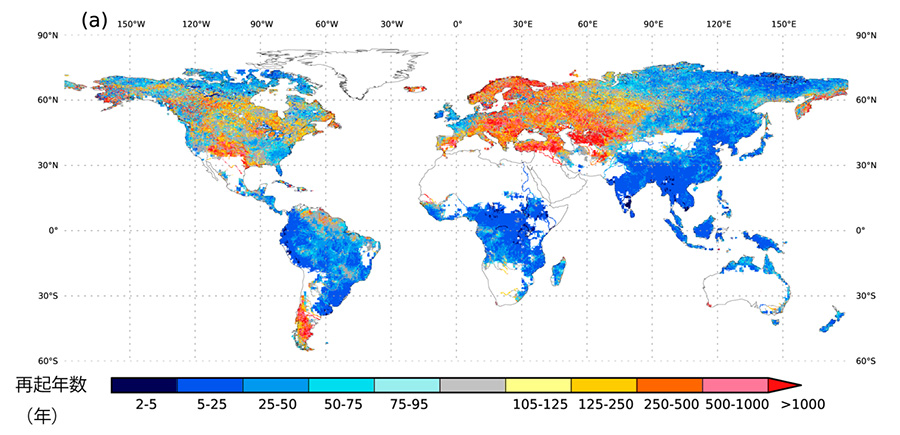Academic Studies in SIT
Hydrology – The Study of Water at Shibaura Institute of Technology

One of the most important resources on the planet is water, but it also has to be carefully managed, and that’s why the study of water, or hydrology, is essential in understanding its influence on us, and the world around us. It has implications at both a local level, for example flood management, and at a global level such as climate change, with a connection between both local and global factors.
The Shibaura Institute of Technology’s (SIT) program of study in civil engineering, with a focus on hydrology, is the ideal course for any student interested in water – especially as it is situated in a country with vast experience in both water management and flood damage. At SIT you can study this subject in depth, and expand your worldview at the same time!
What is research on disaster prevention using hydrology?
Hydrology is an amazing discipline which touches upon so many other fields, including climatology and agriculture, and to a large extent it brings into focus the interaction between water and people. In particular this refers to disaster prevention.
Hydrology is part of the natural sciences, for example at school we all learn about water circulation and natural processes like rainfall and rivers. We are also all aware of natural disasters which can occur related to water, from drought to flooding, but what isn’t so well known is that an understanding of these processes and why these disasters happen is absolutely essential for many people working in engineering.
For example, when dikes are being built engineers can’t just assume how high water levels may reach. A number of different factors have to be considered, for example when building a dike for a river, one must think about rainfall (including data on above average rainfall) or any other sources of water for the river, where water might flow to if it is blocked or redirected, as well as flood management if the dike is breached. An engineer can’t effectively prevent a disaster like a flood without a thorough understanding of the mechanics behind flooding, or in other words hydrology.
For researchers investigating disaster prevention as well, if water is involved in any way then they need to understand hydrology. This can be expanded even to disasters involving a lack of water, when a region is arid or not receiving enough water to meet local demand, then both researchers and engineers need to investigate the hydrological processes for that region in order to better manage water resources.
Water cycle is a basis of energy and service from nature, so it shouldn’t be too much of a surprise that the study of water is a key field – especially as people live across the whole globe. It is a resource which affects every single nation on this earth, and of course it is something we all interact with every day from drinking and showering, to even playing in the snow! This also means that researchers of hydrology often go on research trips to countries all over the world.
However, to be a researcher, or specialist, of hydrology you need to be equipped with the skills and knowledge to actively apply what you know to any given situation. This is where the study program, and hydrology research group, at SIT demonstrate their worth to any prospective student of this field.
Research on disaster prevention using hydrology at Shibaura Institute of Technology

Professor Yukiko Hirabayashi heads the hydrology lab at SIT, and actually originally completed her B.S. in Civil Engineering at SITs before doing an M.S. and PhD at the University of Tokyo. Her lab’s main research interest is understanding, and predicting, the global hydrological cycle.
By undertaking research in this field they are trying to combat the many issues that population increase and climate change cause, such as sustainably accessing water, or preventing natural disasters like flooding. Two current research themes in her lab are; creating essential projections in order to make flood plans, and water resources – planning sustainable water use via a past to future model experiment and data analysis. As global warming continues apace the dangers of negative impacts in local areas increase, one aspect being more heavy rainfall alongside higher sea levels, either of which can cause flooding.
As recently as December 2018, a new law came into force in Japan requiring nation and local government to create climate adaptation plans as a counter-measure against the negative effects of global warming. It has never been as important as now to be able to project and floods.

The other research theme can be easily understood through the example of water resources in order to grow crops. Several research revealed that ongoing global warming has already caused crop production loss globally, and part of it is due to changes in precipitation (rainfall and snowfall) in drier regions.
In both research themes there are things to be learnt which can be applied to many situations around the world, so the skills that can be developed from studying hydrology are really useful! In addition, at SIT there are international students from around the world, as well as Japanese students, so you will be able to learn about water resource challenges and water-related disasters from other regions of the globe, and also more localized issues across Japan.
The role and work of hydrologists

Engineers who have specialized in hydrology have an important role to play in society today, which is why it is so essential that hydrologists not only learn about the subject itself but also understand how to use that knowledge.
Projects and relief work are constantly taking place, for example on infrastructure or disaster relief, which are related to water resources and water-related natural disasters. Hydrologists are needed not only to provide their expertise, but also to drive forward data collection and research for the future.
In terms of employment, today they are needed in local governments, and national governments, for engineering work, research and policy creation, while at the same time being heavily sought after in major industries such as agriculture and construction.
Many people also go on to further study as there is a lot of research to be done in many fields that require knowledge of hydrology in relation to climate change, from climate modelling to future water resource forecasting and management. All of these different types of employment go hand in hand with natural disaster prevention and mitigation.
In future, demand for hydrology specialists will only increase as the global population grows, squeezing available water resources, and climate change causes variable changes to regional weather, such as too little or too much water. At SIT you will be able to build valuable skills to tackle these issues.
For anyone interested in the study of water SIT is the right place to be, in addition to having amazing experts in this field of study and great facilities, you will also be in a country which has the right conditions for water research, and which faces great challenges. Furthermore, as SIT has a great international community, and is situated in the most internationalized city in Japan, you will be able to come into contact with a really global view of hydrology, and study alongside a variety of different people. Now, is really the time to study water!